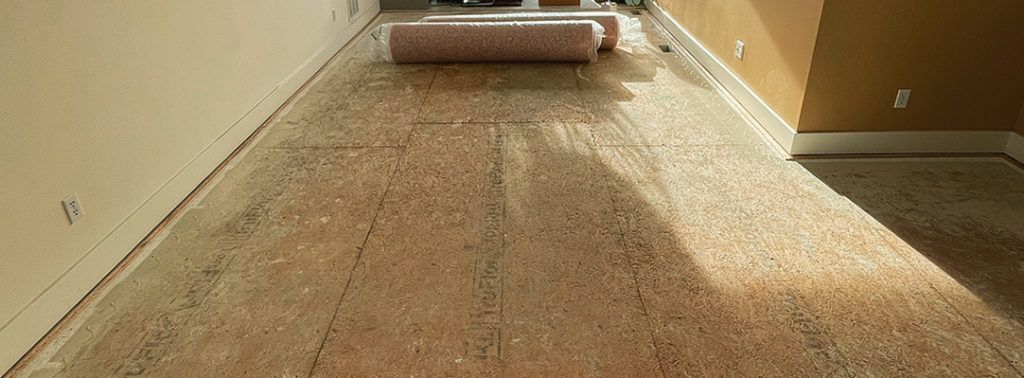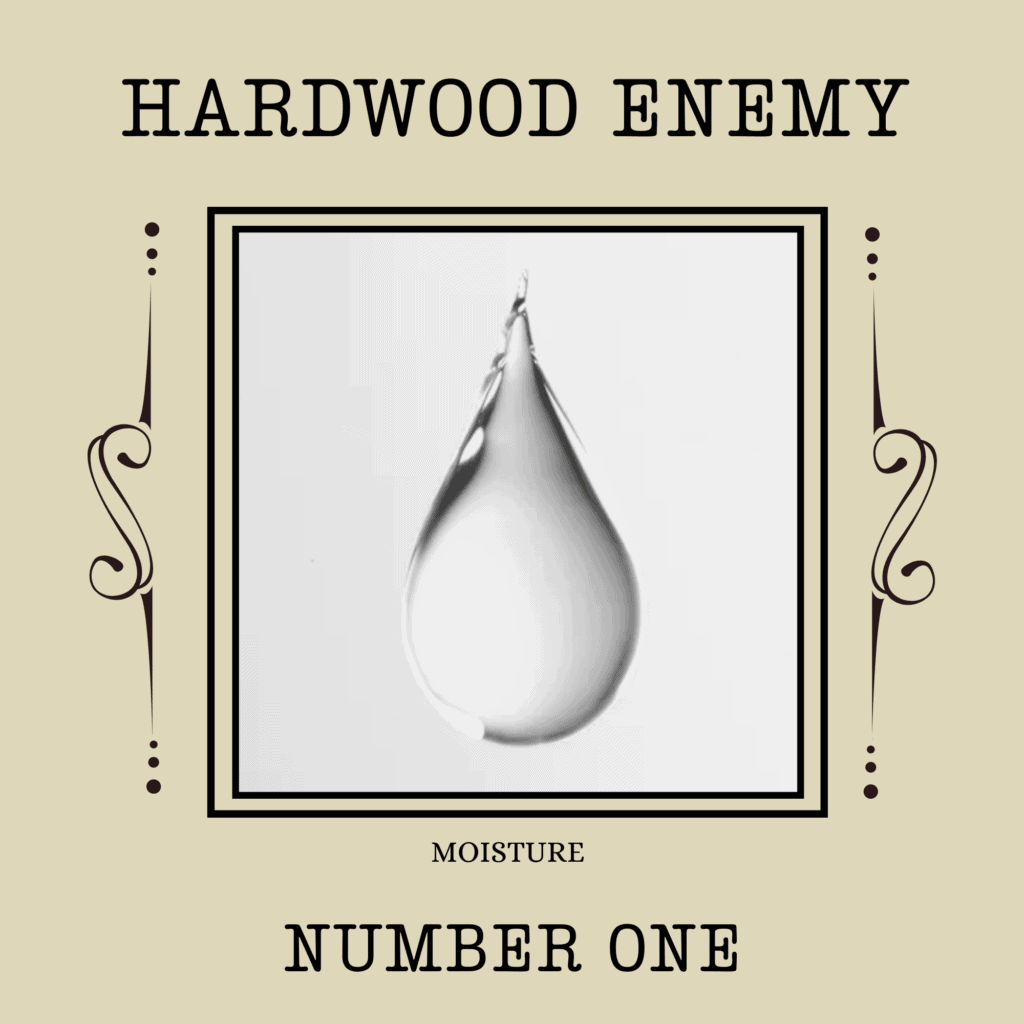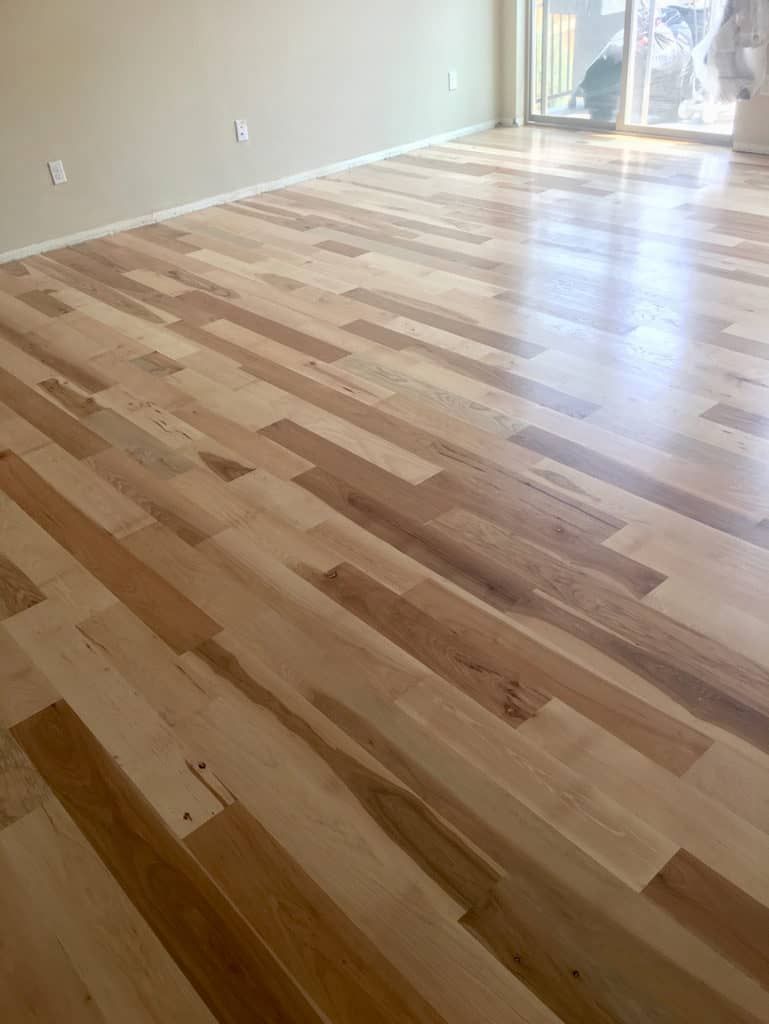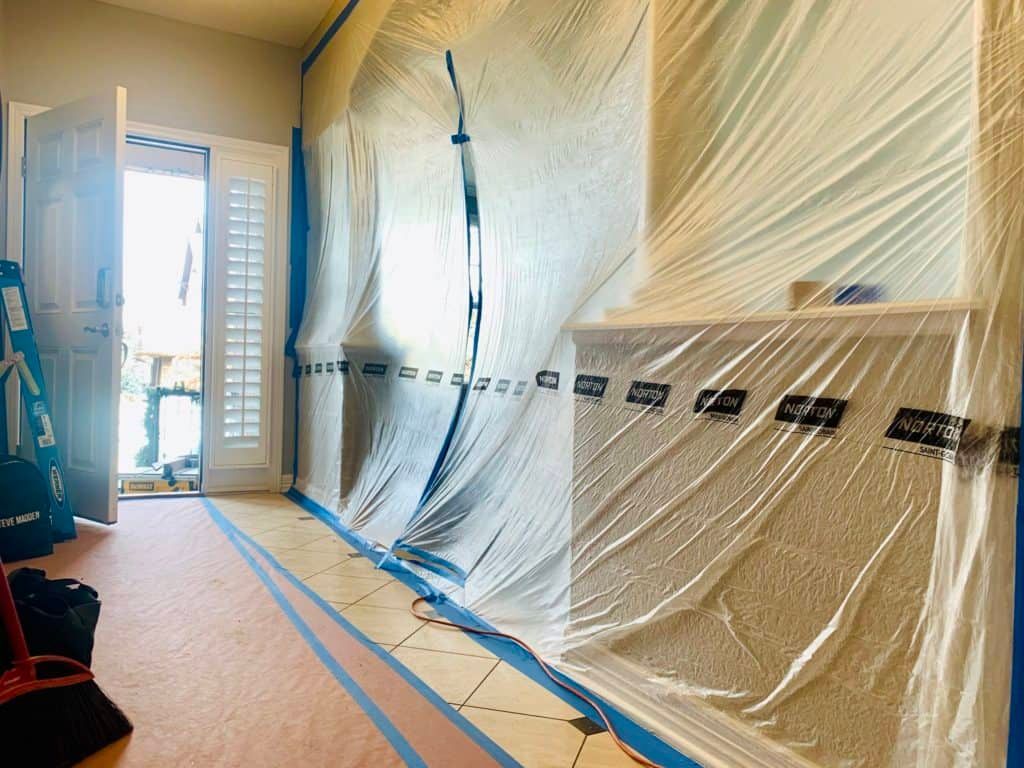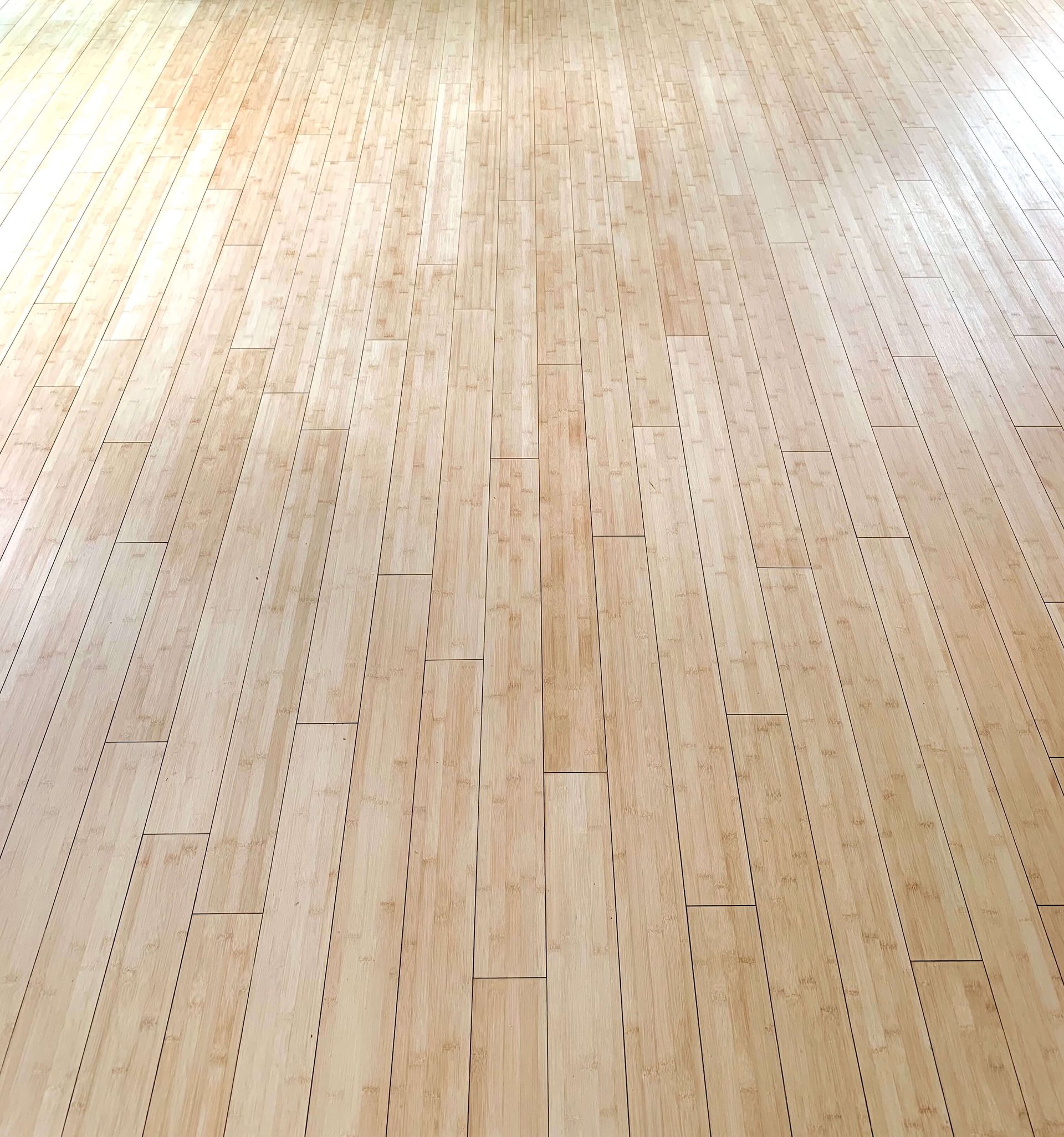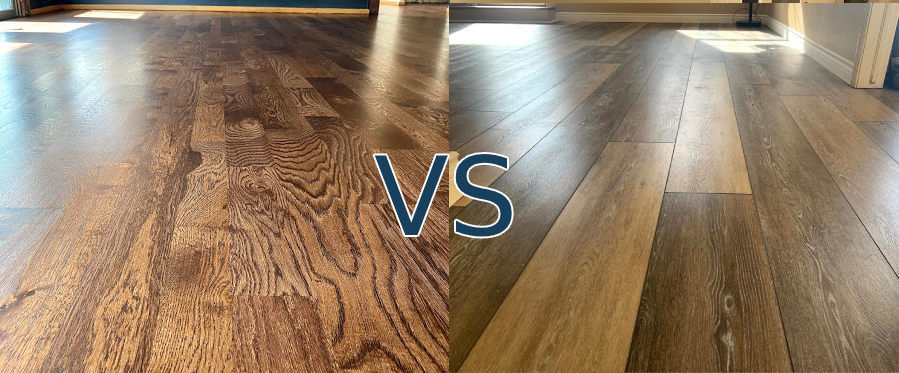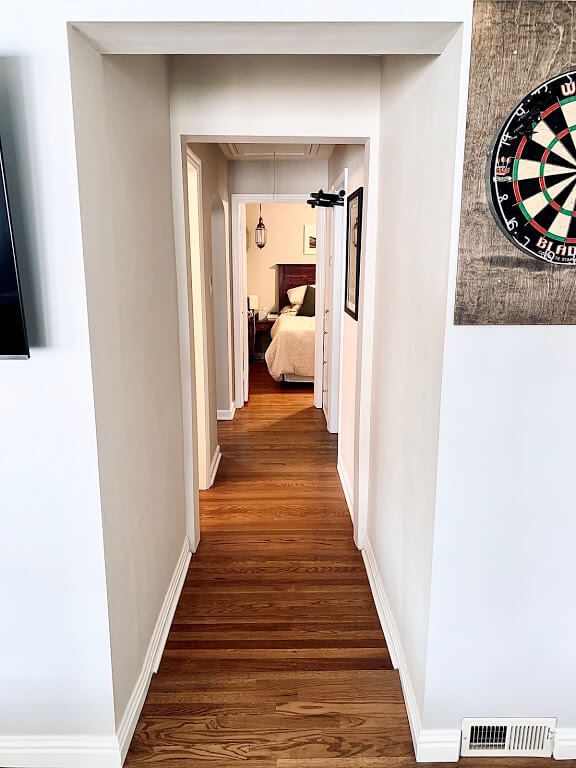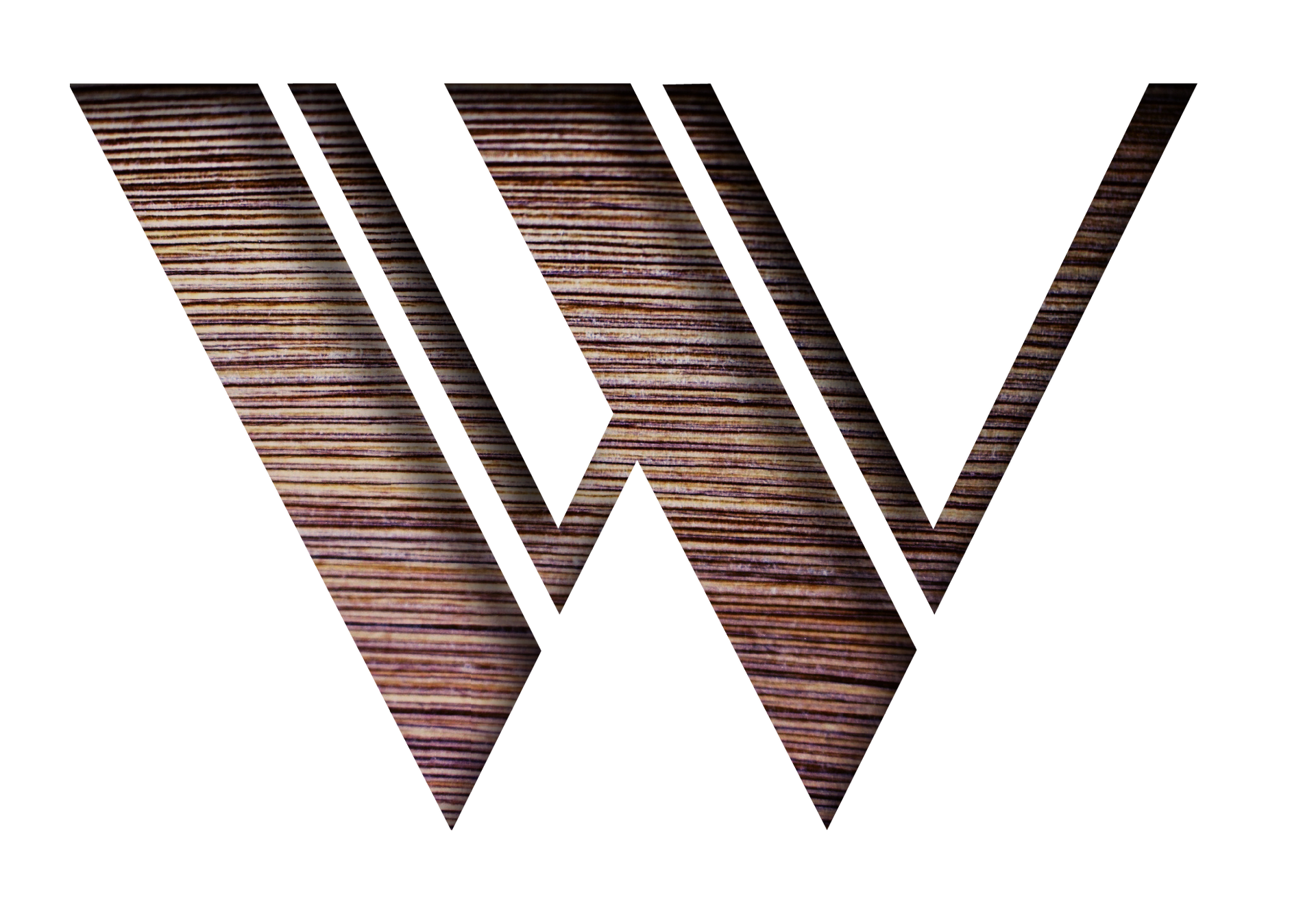Get in touch
Call: (720) 539-9899
Email: walnuthardwoodllc@gmail.com
Service Areas: Denver, Aurora, Lakewood, Thornton, Arvada, Westminster, Centennial, Boulder, Longmont, Greeley, Fort Collins, Littleton, Englewood, Broomfield, Castle Rock, Commerce City, Parker, and Brighton in Colorado.
Business Hours
- Mon - Thu
- -
- Friday
- -
- Sat - Sun
- Closed
Hardwood Finishing Guide: Oil-based vs. Water-based Polyurethane
After installing hardwood, a project is only complete when the floors are finished, literally. Choosing a finish is important because it protects your hardwood like armor. There are several products on the market but oil and water-based polyurethane are most common in residential flooring projects. You might feel panicked thinking you have no clue which finish should be used on your floors, you’re not alone! We’ve put together this guide because many of our customers ask us, “What’s the difference between Oil and Water-based finishes?” When considering which finish is best for your home, keep in mind that along with a quality product, the application and routine maintenance will also play a role in the finish’s longevity. That’s why we’re here for you as a trusted full-service flooring contractor based in Denver, CO. Feel Free to jump ahead to any of these sections:
OIL-BASED HARDWOOD FINISHES
Oil-based hardwood finish is one of the most common materials used to protect and beautify hardwoods. Oil-based finishes typically have a warm, amber hue that slowly darkens over time and can be described as putting an amber filter on top of your floor. This style of finish will highlight the graining and coloring making the individual boards pop. And although oil finished floors are known for their shine, they come in a variety of sheen levels including, high gloss, low gloss, and matte.
Oil-based hardwood finishes require a two coat application. However, the drying time is quite slow and therefore 24 hours are typically required between applications and walking on the floors. Oil-based finishes also have higher VOC volumes which means that we do not advise homeowners to be in the home during application and drying time. Due to the composition of oil-based finishes, the curing time is also longer, taking around 30 days to fully cure. The disadvantages, to a long curing time, are that some VOCs may still be emitted and rugs and extra heavy furniture should not be put down until those 30 days are up. Although, most furniture can be replaced 72 hours after the final coat has been applied.
High-quality oil-based hardwood finishes are typically refinished after approximately 10-20 years depending on the use and upkeep of the floor. Compared to water-based finishes, oil-based finishes are softer and may dent more easily over time.
WATER-BASED HARDWOOD FINISHES
Today, water-based polyurethanes have become an increasingly popular option for finishing and refinishing hardwood floors.
Water-based finishes are clear in color, which makes them a good option for bringing out the natural beauty of your hardwood floors. These finishes compliment all stains and are especially recommended for whitewashed or grey stained floors that would otherwise clash with an oil-based stain. Overall, water-base slightly softens the natural graining and knotting in hardwood planks while oil typically highlights those characteristics. However, with water-based finishes, you can still achieve a deep shine, if that’s what you’re looking for. Water-based finishes come in matte, satin, and semi-gloss.
Water-based finishes require at least 3 applications compared to the 2 coats oil requires. In cost, water-based is usually more expensive than oil but the accelerated drying time, 5-6 hours, and much lower VOC’s make it worth the extra cost. Because of these advantages, multiple coats of finish can be applied in a day, and homeowners can be at home during the application and drying time. Once the floor is dry, around 5 hours, the floors are safe to walk on with stocking feet until they are fully cured.
A water-based finish typically cures in 3 days depending on the brand, and furniture can be moved in 72 hours after the final application. After finishing, the floors need time to breathe so homeowners should refrain from putting down rugs for 14 days.
Quality water-based finishes are just as durable as oil-based and can last 10-20 years as well. One thing you might consider with a water-based finish is a recoat or screen and coat around 5 years after the floor’s last finish. These extra coats of finish help to continue to protect your floor and extend the longevity of the finish over the years. With that said, even homes with heavy traffic do not need to shy away from water-based finishes because commercial grade finishes, such as Bona Traffic, are designed to stand up to heavy wear and tear. Lastly, compared to oil-based finishes, which have a softer composition, water-based finishes are harder which means they scratch more easily over-time. *It’s important to note that while finishes protect and shield your floor from everyday wear and tear, like a shield, your floor’s finish will show battle scars over time. This means that scratching and denting will likely occur but instead of the hardwood taking the blows the finish will instead.
OIL VS WATER-BASED POLYURETHANE
Side by side, here’s a quick look at how oil and water-based polyurethane compare in a few key product categories.
- Price: Water-based polyurethane finishing is more expensive than oil-based.
- Number of Coats: Oil-based finishes require fewer coats than water-based.
- Drying Speed: Water-based finishes dry quicker than oil-based.
- Odor: Oil-based finishes have a much stronger odor than water-based
- Color: Oil-based finishes have an amber hue, whereas water-based stains are clear.
- Durability: OIl and water-based finishes are both durable options
- Refinishing Period: Water-based finishes may require a screen and coat, not a complete sand and finish, over time to maintain its strength and longevity.
HOW TO CHOOSE THE BEST WOOD FINISHING BRANDS
Like many products, consumers typically “get what they pay for” when it comes to hardwood finishes. Cheaper finishing should be avoided at all costs because it is likely that more maintenance will be required down the road which will cost you more in the long run. Walnut Hardwood LLC provides exceptional hardwood refinishing services in the Denver area, and we typically use Loba or Bona products in all of our hardwood finishing.
WE RECOMMEND: LOBA OR BONA
Why do we recommend these brands? Both Loba and Bona are trusted professional brands with 100 years or more of experience. They are at the top of the market and are leaders in creating high-quality, beautiful finishes capable of maximizing the protection of hardwood floors. Loba is a German brand that’s been in business for 90 years, while Bona hails from Sweden with over a century of manufacturing. For more information, feel free to read The Master’s Craft Guide on How to use Bona Wood Floor Finish.
TALKING TO YOUR CONTRACTOR
Before committing to a hardwood finish, ask your contractor which type of finish they use and why. Reputable contractors should work with professional products that combine value and quality for optimal protection and satisfaction. Your contractor should also be aware of the use of the space the hardwood is installed in and suggest a finish that fits accordingly. As we mentioned, a finish like Bona Traffic is suited for high traffic areas but isn’t necessary for a sitting room.
THE HOMEOWNER’S ROLE
The reality is that hardwoods, while extremely durable and long-lasting, can only live up to their full potential when treated with respect. It may sound a little funny, but after all, they are a living and breathing thing and like humans can be high-maintenance. (If you are looking for something easier to maintain check out our blog on the pros and cons of vinyl flooring .) The level of care you give to your hardwoods will impact their appearance and health. Committing to a weekly cleaning routine is essential. For more details, please check out our complete guide for cleaning hardwood floors. We also recommend:
- Leaving shoes at the door
- Adding felt pads to furniture
- Monitoring the relative humidity in your home, hardwoods perform best between 30%-50%
Yes, they require maintenance! But hardwoods have proven time and time again to be versatile, durable, and long-lasting. Are you interested in putting something other than hardwood beneath your feet? Learn about the pros and cons of hardwood vs vinyl flooring or everything you need to know about bamboo flooring.
Walnut Hardwood LLC
Address
Phone
Business Hours
- Mon - Thu
- -
- Friday
- -
- Sat - Sun
- Closed
Service Areas
Denver, Aurora, Lakewood, Thornton, Arvada, Westminster, Centennial, Boulder, Longmont, Greeley, Fort Collins, Littleton, Englewood, Broomfield, Castle Rock, Commerce City, Parker, and Brighton in Colorado.
Business Hours
- Mon - Thu
- -
- Friday
- -
- Sat - Sun
- Closed

